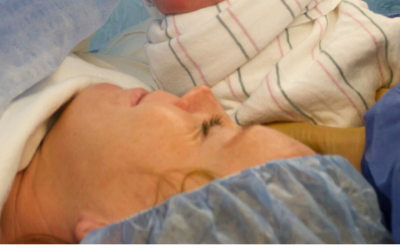
Do preeclampsia prediction biomarkers vary in patients of different BMIs?
First Trimester Preterm Preeclampsia Prediction with Metabolite Biomarkers: Differential Prediction According to Maternal Body Mass Index
Recent research suggests that there may be different types of preeclampsia (such as early- versus late-onset, with or without severe features, HELLP syndrome, and postpartum-onset). These type of preeclampsia may also vary based on specific individual risk factors. One risk factor that researchers have identified is a woman's body mass index (aka BMI), a number calculated from a patient's height and weight.
In this study, researchers asked: are there biomarkers (molecules measured in the blood) in early pregnancy that can predict preterm preeclampsia later in pregnancy? And if so, are those biomarkers different in women in different BMI groups (healthy, overweight, obese)? Researchers found distinct levels of certain metabolites (small products of metabolism) in blood drawn in early pregnancy that were linked to developing preterm preeclampsia later in that pregnancy. Interestingly, one metabolite was a form of vitamin D (25-hydroxyvitamin D3). Others were small fatty acids and individual amino acids (the building blocks of protein). When comparing metabolites and their ratios to one another among women in different BMI groups, researchers also found among women who went on to develop preterm preeclampsia, that metabolites in early pregnancy were different depending on BMI groups, particularly for women with overweight and obesity.
Take home message: As preeclampsia research continues to move forward at an accelerated pace, research is revealing possible differences not only in “types” of preeclampsia, but also differences in maternal risk profiles. This study suggests that women of different BMI classes might have distinct risk profiles for preeclampsia. More work is needed to refine risk factors for individuals, with the ultimate goal of having an early-pregnancy screening test to predict preeclampsia.
Link: https://www.ajog.org/article/S0002-9378(22)02290-6/pdf
Citation: Tuytten R, Syngelaki A, Thomas G, Panigassi A, Brown LW, Ortea P, Nicolaides KH. First Trimester Preterm Preeclampsia Prediction with Metabolite Biomarkers: Differential Prediction According to Maternal Body Mass Index. Am J Obstet Gynecol. 2022 Dec 17:S0002-9378(22)02290-6. doi: 10.1016/j.ajog.2022.12.012. Epub ahead of print. PMID: 36539025.
About Research Roundup
Each quarter, our team of researchers reviews the most current studies related to hypertensive disorders of pregnancy and selects those studies they feel will be of greatest interest to our community to summarize.
Special thanks to our volunteer research team, who under the leadership of Dr. Elizabeth Sutton, make Research Roundup possible: Alisse Hauspurg, MD Felicia LeMoine, and MD Jenny Sones, PhD, DVM.
Related Articles

Recent findings in preeclampsia research have shown that preeclampsia likely has at least two variants – an early onset and a late onset variant. Early onset is typically defined as before 34 we...

Preeclampsia is a pregnancy complication marked by new-onset high blood pressure and signs of stress on organs such as the kidneys, liver, and brain. While much attention is often given to preterm dis...

Preeclampsia is a serious problem that can happen during pregnancy. It often affects the brain and can cause headaches, vision problems, strong reflexes, and seizures (called eclampsia). In this study...

Pregnancy offers a unique window into a woman’s future heart and cardiovascular health. Conditions such as hypertensive disorders of pregnancy (HDP) which include gestational hypertension, preec...

Heart disease, also called cardiovascular disease (CVD), is becoming more common in young women across the United States. Hypertensive disorders of pregnancy (HDP) is a group of conditions that includ...

